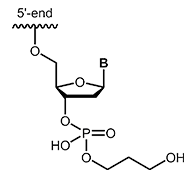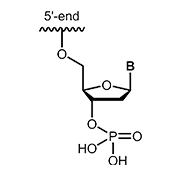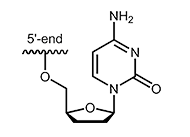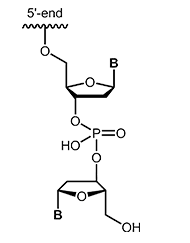
PCR-Blocker
PCR-Blocker
Blocker-oligos: PCR-Blocker and modifications for blocking the 3'-terminus of an oligonucleotide
Specific blocking of individual components in a reaction mixture can be a valuable tool for complex reaction processes.
These targeted blockages are used in PCR reactions or to prevent concatemer formation . As so-called PCR blocker oligonucleotides with a defined sequence they can inhibit the polymerase during elongation without participating as a primer itself.
More common is the use of blocking modifications in qPCR probes. As result of the modification the oligonucleotide probes lack the hydroxyl group at the 3'-end required for the extension in PCR.
Depending on different applications there are several possibilities for functionalized oligonucleotides . Below you will find a short overview with available modifications.
3'-Spacer C3
|
 |
3'-Phosphat
|
 |
3'-ddC
|
 |
3'-Inverted End
|
 |
For further information and more details as well as pricing we are at your disposal at all times.
Tel +49 731 70 396 0 | info@biomers.net

